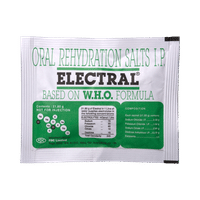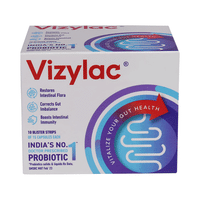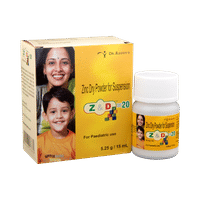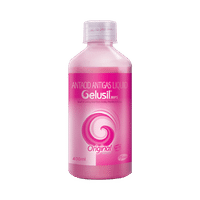Rs.112for 1 strip(s) (10 capsules each)
food interaction for Shinorab D
alcohol interaction for Shinorab D
pregnancy interaction for Shinorab D
lactation interaction for Shinorab D
food
alcohol
pregnancy
lactation
Shinorab D 30 mg/20 mg Capsule is to be taken empty stomach.
Take it preferably 30 minutes before food.
None
Take it preferably 30 minutes before food.
None
CAUTION
Caution is advised when consuming alcohol with Shinorab D 30 mg/20 mg Capsule. Please consult your doctor.
CAUTION
Shinorab D 30 mg/20 mg Capsule may be unsafe to use during pregnancy. Although there are limited studies in humans, animal studies have shown harmful effects on the developing baby. Your doctor will weigh the benefits and any potential risks before prescribing it to you. Please consult your doctor.
CONSULT YOUR DOCTOR
Shinorab D 30 mg/20 mg Capsule is probably unsafe to use during breastfeeding. Limited human data suggests that the drug may pass into the breastmilk and harm the baby.
CONSULT YOUR DOCTOR
SALT INFORMATION FOR Shinorab D
Domperidone(30mg)
Uses
How it works
Domperidone is a prokinetic. It works on the region in the brain that controls vomiting. It also acts on the upper digestive tract to increase the movement of the stomach and intestines, allowing food to move more easily through the stomach.
Common side effects
Headache, Dryness in mouth, Diarrhea, Rash, Sleepiness, Agitation, Breast pain, Anxiety, Breast tenderness, Loss of libido, Itching, Unusual production of breast milk in women and men, Weakness, Anaphylactic reaction, Convulsion, Nervousness, Extrapyramidal symptoms, Ventricular arrhythmia, Angioedema (swelling of deeper layers of skin), Urinary retention, Abnormal liver function tests, Increased prolactin level in blood
Rabeprazole(20mg)
Uses
Rabeprazole is used in the treatment of acidity, gastroesophageal reflux disease (acid reflux) and peptic ulcer disease.
How it works
Rabeprazole is a proton pump inhibitor (PPI). It works by reducing the amount of acid in the stomach which helps in relief of acid related indigestion and heartburn.
Common side effects
Diarrhea, Dizziness, Flatulence, Headache, Nausea, Vomiting, Abdominal pain, Weakness, Nervousness, Bronchitis (inflammation of the airways), Sinus inflammation, Sleepiness, Vertigo, Rash, Dryness, Increased liver enzymes, Dermatitis, Itching, General discomfort, Decreased white blood cell count (neutrophils), Decreased white blood cell count, Low blood platelets, Increased white blood cell count, Decreased appetite, Depression, Visual disturbance, Stomach inflammation, Stomatitis (Inflammation of the mouth), Taste change, Sweating, Weight gain
SUBSTITUTES FOR Shinorab D
367 Substitutes
367 Substitutes
Sorted By
 Rs. 175.20pay 16% more per Capsule
Rs. 175.20pay 16% more per Capsule Rs. 51save 56% more per Capsule
Rs. 51save 56% more per Capsule Rs. 205pay 81% more per Capsule
Rs. 205pay 81% more per Capsule Rs. 111.25save 5% more per Capsule
Rs. 111.25save 5% more per Capsule Rs. 112save 3% more per Capsule
Rs. 112save 3% more per Capsule
Expert advice FOR Shinorab D
- Domperidone helps relieve nausea, vomiting, and indigestion.
- It should be taken before meals as per the dose and duration prescribed by your doctor.
- It may cause dizziness and sleepiness. Do not drive or do anything that requires mental focus until you know how it affects you.
- Avoid consuming alcohol when taking Domperidone as it may cause excessive drowsiness.
- Dry mouth may occur as a side effect. Frequent mouth rinses, good oral hygiene, increased water intake and sugarless candy may help.
- Inform your doctor if you get watery diarrhea, fever, or stomach pain that does not go away.
- Do not take it for longer than 7 days without consulting your doctor.
Frequently asked questions FOR Shinorab D
Domperidone
Q. What is Domperidone used for?
Domperidone is used for the treatment of nausea (feeling sick) and vomiting as and when recommended by your doctor.
Q. Is Domperidone an over the counter drug?
Domperidone is not an over-the-counter (OTC) medicine and it is not advisable to take it without a prescription.
Q. Does Domperidone cause weight gain?
Weight gain has not been reported with the use of Domperidone. If you notice any abnormal weight gain while using Domperidone, please talk to your doctor.
Rabeprazole
Q. What is Rabeprazole used for?
Rabeprazole is used for the treatment of stomach and intestinal ulcers (gastric and duodenal ulcers), reflux esophagitis, or gastroesophageal reflux disease (GERD). It works by reducing the amount of acid made by your stomach and thus relieves your symptoms. Rabeprazole also prevents acidity associated with the use of painkillers and stress ulcers in critically ill people. It is also used to treat a disease associated with excessive acid production in the stomach known as Zollinger Ellison syndrome (ZES).
Q. How long does it take for Rabeprazole to work?
Rabeprazole starts working within an hour of taking it and shows maximum benefit within two to four hours. You should start feeling better within 2 to 3 days but it may take up to 4 weeks to relieve your symptoms significantly.
Q. What is the best time to take Rabeprazole?
It is best to take Rabeprazole before your breakfast. If you are taking two doses, take it in the morning and evening. Rabeprazole is more effective when it is taken an hour before your food.























